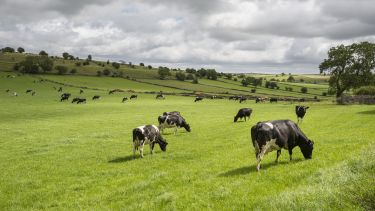The UK’s new Agriculture Bill “one of the most significant pieces of legislation for farmers in England for over 70 years”. It could directly affect and determine the future of the currently under agricultural management. The bill sets out the UK’s approach to farming as it prepares to leave the European Union, replacing the Common Agricultural Policy (CAP) that the UK has been part of since 1973.
At the bill’s core is a shift away from direct payments to farmers based upon the amount of agricultural land they manage. This was a feature of the CAP that was heavily criticised as it , creating an entry barrier for younger farmers, and . It also meant the farming of unproductive land that .
Read more:
Instead, landowners will in future be paid to produce “”. These are things that can benefit everyone but bring no financial reward to those who produce them, like clean air and water.
Over the next seven years, farmers will move from the CAP regulations to a new system of . These will detail the terms and conditions under which farmers and land managers will receive funding. Subsidies are expected to be paid out from taxpayer funds at the same rate as the EU – about a year – to enable landowners to deliver the public goods set out in the UK government’s and the .
Achieving these goals will seem rather daunting though. They include clean air and plentiful, clean water, but also thriving wildlife, reduced risk from environmental hazards such as flooding and drought, raising animal welfare standards and enhanced beauty, heritage and opportunities to engage with the natural environment.
One of the big priorities of the bill is soil. Erosion rates from ploughed fields are between ten and 100 times greater than rates of soil formation. As a result, the UK faces within our lifetimes. The government will reward farmers who protect and improve soil quality with measures like , and give ministers new powers to .
Building buy-in from farmers
Alongside the Agriculture Bill is the new , which will enshrine environmental principles in UK law after Brexit. The UK will lose access to EU bodies that monitor and enforce environmental laws, so the for maintaining standards. With the EU watchdog gone, setting up a new independent Office for Environmental Protection has been proposed, but how effective it will be in imposing the heavy fines necessary to enforce standards.
Farmers often feel isolated from the powers of government and daunted by the task of delivering both agricultural productivity and environmental enhancements. The Department for Environment, Food and Rural Affairs (Defra) has at least committed to designing the new contracts with farmers and land managers.
Finding ways to engage those who will be most affected by the changes will be important for ensuring the policy works on the ground. Landscape-scale solutions to decarbonising agriculture and averting the climate crisis . They won’t be possible without popular support.
The bill still lacks crucial detail. There are no firm commitments to protect British farmers from cheap, low-standard foreign imports
Dr Ruth Little
Lecturer in Human Geography
But the bill still lacks crucial detail. There are to protect British farmers from cheap, low-standard foreign imports, which is particularly important as the government seeks to negotiate trade deals with countries whose standards are lower than Britain’s.
Building a post-Brexit food and farming system that protects the environment won’t be easy. There are exciting opportunities embedded in this bill. But restoring land to health and guaranteeing food supplies will need proper engagement with those who will be affected and a solid scientific bedrock on which to build the government’s ambitious – but underdeveloped – plans.
This article originally appeared in The Conversation on January 17th 2020, written by Dr Ruth Little and Dr Judith Tsouvalis.



